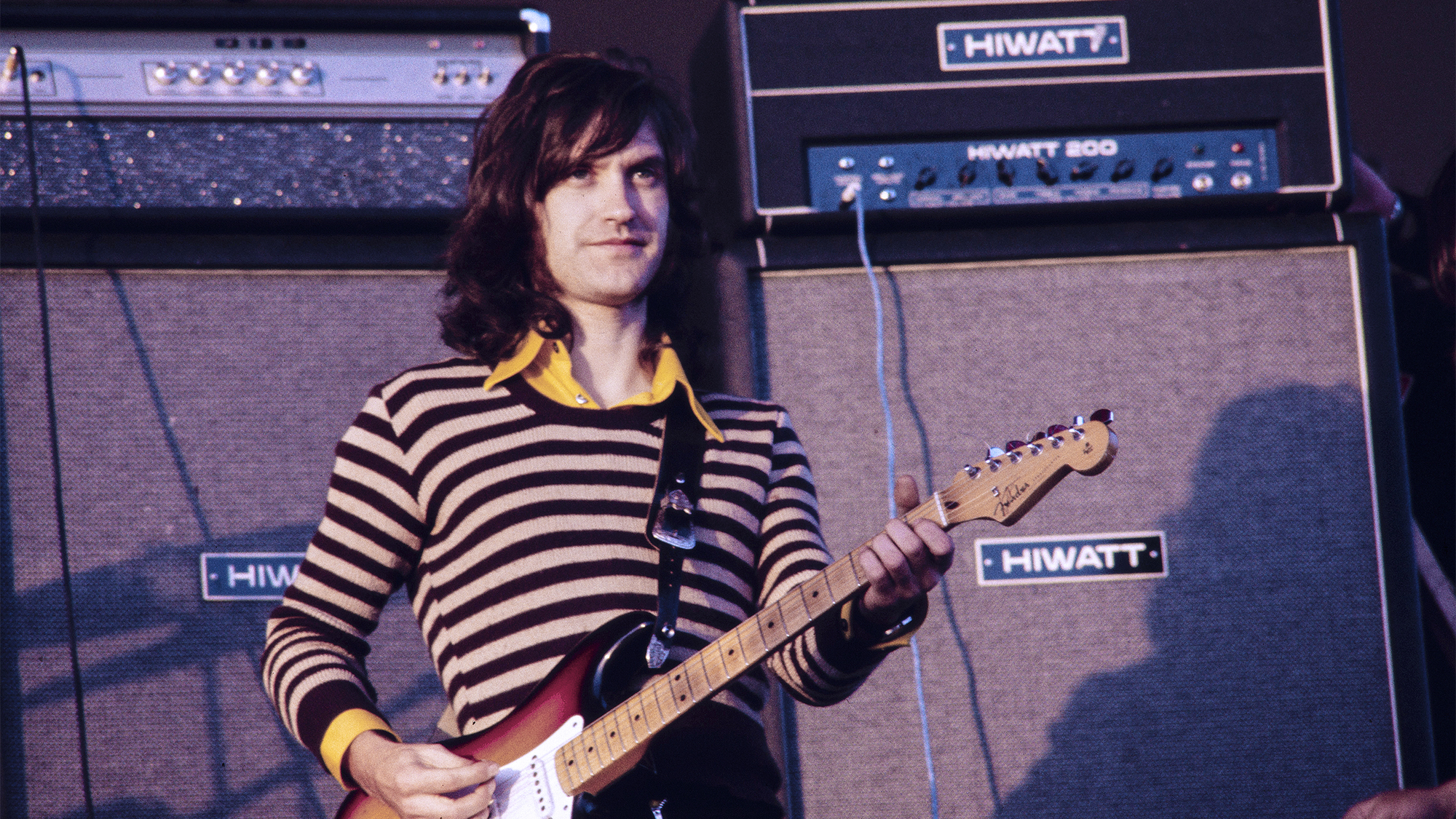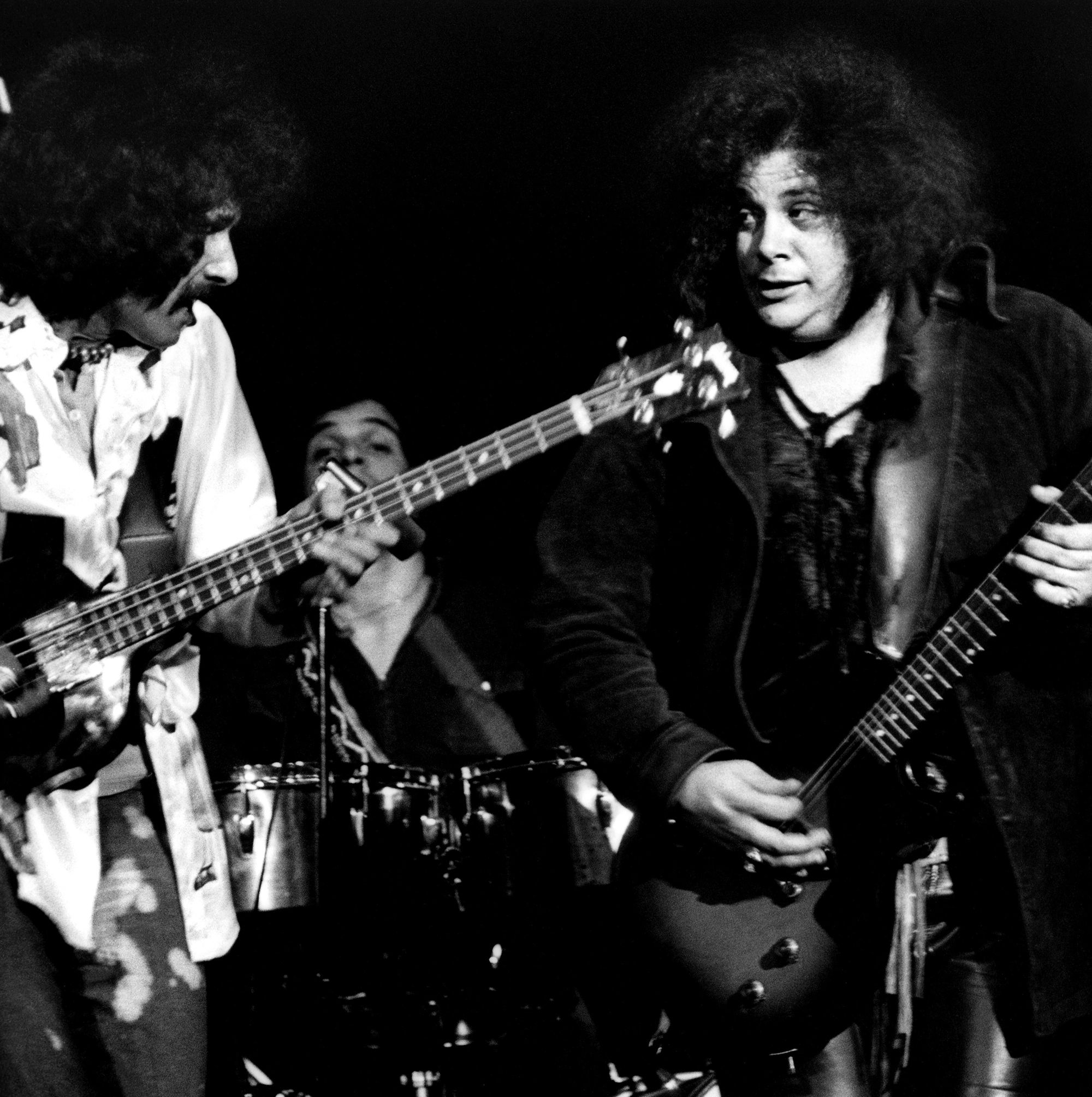"He was rock and roll to the roots." Dave Davies names the guitarist who defined rock in the 1970s, and picks the song that proves it
Davies is a harsh critic when it comes to guitar. But one player astonished him with his tone, technique and talent for melody

All the latest guitar news, interviews, lessons, reviews, deals and more, direct to your inbox!
You are now subscribed
Your newsletter sign-up was successful
Dave Davies is credited with launching the sound that gave birth to hard rock. When he slashed the speaker of his Epico practice amp and churned out the power chords to the Kinks’ “You Really Got Me,” the then 16-year-old guitarist not only supercharged British rock and roll — he inspired guitarists ranging from Jimmy Page to Pete Townshend, who would pay tribute to the Kinks’ with the Who’s “I Can’t Explain.”
Davies was himself influenced by early rock and roll guitarists like Chuck Berry and Eddie Cochran.
But as he tells with Uncut, he was floored by one guitarist who followed him. Leslie West, the powerhouse guitarist for Mountain, who made some of his greatest electric guitar tones with a humble Gibson Les Paul Junior, loaded with nothing more than a single P90 pickup.
And the album Davies feels shows West at his best? Nantucket Sleighride, Mountain’s 1971 effort, and the second studio album in their catalog.
“Mountain were a great influence,” Davies says. “They made heavy tones heavier and their sound was innovative: great production and bass by Felix Pappalardi, Corky Laing on drums and Steve Knight on keyboards — all cool.
“Plus Leslie West was a great and underrated guitar player of the time, and he really stands out on this album. The song ‘Nantucket Sleighride,’ in particular, is a momentous piece of music, a powerful blend of hard rock and melody.”
Years after hearing West, Davies had a chance to share a bill with the guitarist in 2001.
All the latest guitar news, interviews, lessons, reviews, deals and more, direct to your inbox!
“I didn’t get to know him well and I feel sad about that, but he was very nice during our short meeting. I was sad to hear of his death in 2020. He was rock and roll to the roots.”
Davies isn’t alone in his love of West. Townshend was also a fan and enlisted West to assist with the recording of Who’s Next during the Who’s aborted 1971 sessions in New York City. West was also an inspiration to Randy Rhoads, Yngwie Malmsteen, Jared James Nichols and Eddie Van Halen, whose band famously covered “You Really Got Me,” only to earn Davies’ scorn.
Key to West’s style was his ability to craft soaring melodies that became signature elements of the songs, and doing it with a guitar voice so singular that it could belong to no other. His technique of burying his pick as he plucked the guitar string was a key part of his tone.
“When I use a pick — and I use one most of the time — I try to bury it between my thumb and my first finger and just let a little bit of the corner stick out,” he explained to Guitar Player. “I can make a string jump harmonics that way. Albert King does that without using a pick; he uses his thumb.

While Davies cites West’s work on “Nantucket Sleighride,” others have hailed the guitarist for his signature tune, “Mississippi Queen.” As West explained of his tone on that tune, it came about when he received a Sunn Coliseum P.A. head and four 4x12 cabinets instead of the Marshall head and cabinets he was expecting. “When I plugged in and turned it up I got this amazing tone, which became my sound.”
As for Davies’ guitar tone, modern guitarists have many options available that don’t involve slicing up their speakers. They range from pedals to amps, but for those who want to get closest to Davies’ original formula, amp guru Mitch Colby of Sundragon amps has created the Colby Elpico AC55 1x12 combo, a modern take on the humble amp Dave Davies destroyed more than 60 years ago.
In related news, the Kinks are set to release the final part of their 60th anniversary anthology series on July 11. The Journey – Part 3 covers their RCA/Arista period, spanning from 1977 to 1984.
Christopher Scapelliti is editor-in-chief of GuitarPlayer.com and the former editor of Guitar Player, the world’s longest-running guitar magazine, founded in 1967. In his extensive career, he has authored in-depth interviews with such guitarists as Pete Townshend, Slash, Billy Corgan, Jack White, Elvis Costello and Todd Rundgren, and audio professionals including Beatles engineers Geoff Emerick and Ken Scott. He is the co-author of Guitar Aficionado: The Collections: The Most Famous, Rare, and Valuable Guitars in the World, a founding editor of Guitar Aficionado magazine, and a former editor with Guitar World, Guitar for the Practicing Musician and Maximum Guitar. Apart from guitars, he maintains a collection of more than 30 vintage analog synthesizers.

